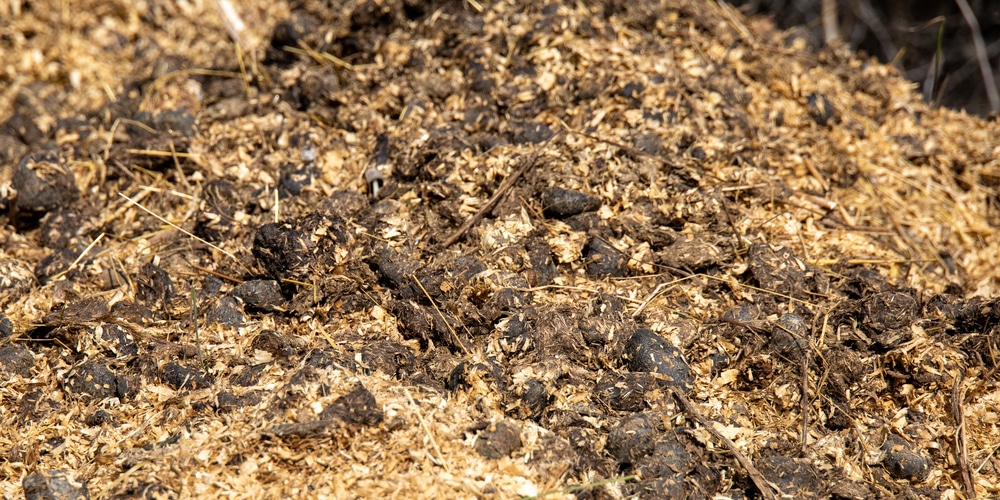If you have a garden and like to put effort into making it look good, you probably are familiar with using manure or compost to fertilize your plants. Instead of purchasing chemical products, you can apply manure to your green friends.
Doing it the right way can increase the nutrient content in the soil without causing much damage to your plants. Also, it will improve drainage and water retention.
Unfortunately, as with many things in life, too much of a good thing can be damaging. The same applies to manure. And while too much of it could kill anything, some plants have a higher tolerance to it than others.
If you want to learn what plants don’t like horse manure, keep reading. We included everything you must know on the topic in this essential guide.
What Can Too Much Manure Do?
As with fertilizers, you should never put too much manure on your plants. Indeed, manure can burn your plants, despite being an organic solution (and therefore less potentially harmful).
After all, the compound contains about 15-20% ammonia (with high nitrogen contents). Too much of it can increase the soil’s acidity and overfeed the roots, which can cause severe issues to your plants. Manure burn is a common problem among many gardeners!
You might be surprised to learn that the pungent odor of manure correlates to the amount of ammonia it contains. The more, the smellier the smell. Do you need a curious fact? Rabbit poo is the only one with no odor and little ammonia (which still carries nitrogen in other ways).
Also, manure contains 5 to 10% content in salt, which can cause severe dehydration to your plants. While you can get manure types with less salt to remove the issue, you should never forget to water your plants after applying it.
Can You Fix Manure Burn?
If you feel like you gave too much manure to your plants, don’t worry. By taking action promptly, you may be able to fix manure burn. If you are keeping your plants in a container, ensure you water them until moisture drains from the drainage holes in the pot.
Of course, that doesn’t mean you should overwater your plants to save them from manure burn. Too much moisture can also bring several problems, including fungal infections and root rotting.
If you see brown patches on your plant’s leaves, cut the foliage to speed up the recovery process.
What Plants Don’t Like Horse Manure?
Now it is time to get to the core of the question: some plants cannot stand manure. However, there are several types, depending on which animal produced it. And all have different qualities, so keep that in mind before deciding something about it.
Overall, the high nitrogen content in manure can damage young plants. Also, don’t forget to avoid applying it to root vegetables (such as potatoes, carrots, beets, onions, and radishes). Indeed, such crops don’t need manure and will not thrive with too many nutrients.
After all, they will produce better harvests (tastier, more flavorful, and with improved textures) when you allow them to “work for their food.” By not making nutrients too “easy to get,” you’ll contribute to making their roots stronger.
Also, tomatoes, peppers, cucumbers, and eggplants tend not to do too well with manure. Indeed, the high nitrogen content will boost foliage but will do so at the expense of fruit production.
Still, you can add some manure to improve the soil’s conditions. Don’t forget to adequately mulch to prevent having issues with it.
Other plants that don’t need manure are the so-called “mid-season” veggies. Broccoli, peas, lettuce, cabbage, kale, and bean don’t do very well with much ammonia.
They are at risk of contamination from pathogens, diseases, and bacteria that live in fresh manure. Because these vegetables “lean” or “sit” on the ground, they are more susceptible to external conditions. For this reason, don’t forget to compost fresh manure before using it in your garden.
Additionally, manure can contain herbicide residue that may damage your vegetable gardens. That is especially true when you feed plants treated with pesticides to animals. Indeed, the chemicals in the products will pass through their digestive system and remain in manure even after composting.
Related article: Can You Put Manure Over Grass Seed?

